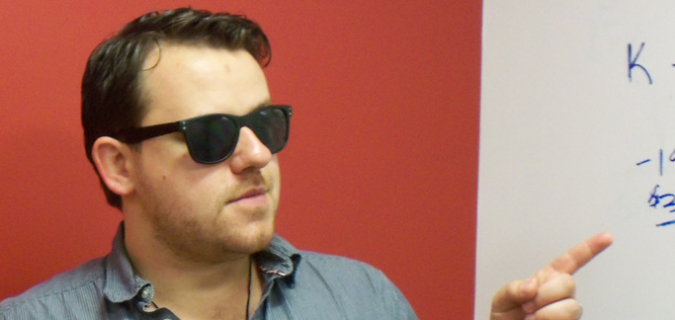Brennan White is the founder and CEO of Cortex, the social media artificial intelligence software, and founder and Managing Director of leading social media marketing agency, Pandemic Labs. Connect with him on LinkedIn. Follow him @Brenomics.
Recently, YEC spoke with Brennan about his experiences networking, and his advice for others aspiring to improve their own experience. His best advice is below.
Always Keep Moving Forward
Never stop. Even though it may seem like you’re meeting the same people, or meeting people who are not obviously helpful, never stop networking. You are your network. In 10 years, your network will have a huge effect on your personal success.
Never Underestimate the Power of an Introduction
A while back, I was introduced to someone on the sidewalk by a friend that happened to be walking by. After being introduced, I kept in touch monthly via email, coffee or at networking events. Eventually, she made the recommendation to the initial investor in my business. The strength of that investor made our entire round. At the time, I would have never guessed what an impact that sidewalk introduction would have had on me and my team.
Keep in Touch
Following through (staying connected) is the most important quality in a successful connector. For years, I was that guy who got along with everyone at the networking event. I was (and am) outgoing and friendly. However, upon leaving the event, I never process-ized the follow up and the cultivation of the connections I had made. After years of doing this I had a harsh realization: all of your networking hours are wasted unless you keep the people you meet in your orbit. Since then, I’ve always made sure to connect and stay connected.
Seek Out Social Events
The more social the event, the better. As much as we think of it as a separate part of our lives, work is part of life. And people like to enjoy their lives. If you attend the events that appear the most entertaining (the “wine and cheese” event over the “discussing supply chain” event for example) two important things happen: you become more likely to look forward to networking and the people you meet will remember you in the context of having fun. This does wonders for future follow-up.
Simplify the Process of Connecting
For tools, I use Asana, Pipedrive and Nimble. With those three combined, you can’t fail. I use a system that seems obvious, but that I find most people don’t employ: religious follow up. Connect with everyone you meet on Linkedin, email or otherwise. Use a tool like Nimble to schedule a next action with them (a check-in a month later, an email with a link to the article you were discussing, etc.). For potential clients/investors use a tool like Pipedrive to keep track of how close each is to the goal (becoming a customer, investing in your company, making an important introduction) and use a tool like Asana to manage any multi-faceted projects you might take on to deliver value to these connections.
Be Your Most Memorable Self
- Be desireless. Don’t have an agenda when meeting people for the first time. Be yourself. Let your agenda be getting to know them for themselves.
- Be the listener. Do much less talking than listening. You will arm yourself for future encounters with this person and the person will like you more.
- Be excellent. When the conversation does come around to talking about you, quickly indicate what you’re excellent at or passionate about personally (not your sales pitch).
- Be gone. When the conversation is slowing down, leave. No first meeting deserves the awkward moment where both parties have run out of things to say but are still standing around together. Be polite, confidently shake hands with eye contact, and head to the bar.
Make a Point to Remember
Nothing sours a great first impression more than promising and not delivering. Even if it was a small commitment (“I’ll shoot you over the link to that article”), it was a commitment just the same. More importantly, it was the first chance for that new person to judge you on your commitment to your word.
Early on in my career, I threw around “small” commitments all the time and barely registered that I was making a commitment. Most often, I forgot about it by the end of the night. In hindsight, I was likely letting people down every night and not even knowing it. Today I make reminders immediately upon any commitment, large or small, and schedule a task in one of my process tools to ensure I deliver on my commitment every single time.













